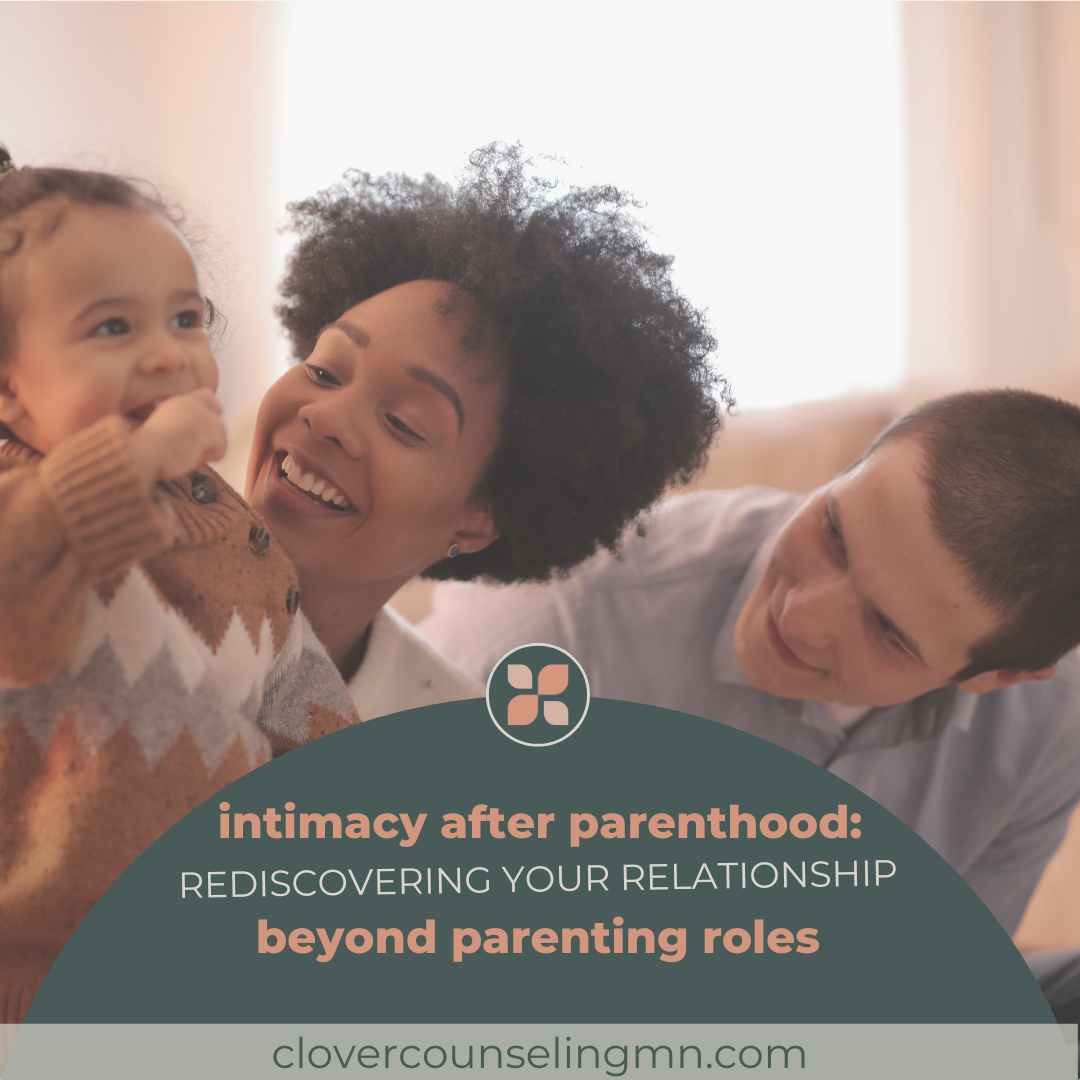
Jealousy Without Judgment: What It’s Really Trying to Tell You
Jealousy. It’s one of those emotions that most of us have felt—and most of us would rather not admit to. In relationships, jealousy can feel confusing, shameful, or even dangerous. We’re taught to either hide it, suppress it, or let it explode. But what if we looked at jealousy differently?

Delayed Desire: Understanding and Embracing Responsive Arousal
Have you ever wondered why you don’t always feel “in the mood” until after intimacy has already begun? Or maybe you’ve questioned whether something’s wrong because you don’t initiate sex as much as your partner. You’re not alone—and there’s a name for this: responsive desire.

How to Navigate Differing Social Needs in a Relationship (Introvert + Extrovert Edition)
It’s a classic pairing: one partner feels energized by a packed weekend of social plans, while the other starts to feel drained just thinking about it. If you and your partner have differing social needs—one of you leans extroverted, the other more introverted—you’re not alone, and your relationship isn’t doomed. In fact, these differences can become a source of strength when approached with curiosity, communication, and care.

The Relationship Check-In: How a Weekly Ritual Can Strengthen Communication
In the hustle of daily life (work deadlines, family demands, social obligations) it’s easy for couples to go on autopilot. You might pass each other in the kitchen or exchange texts about groceries, but meaningful connection? That can slowly slip away without either partner realizing it.

Mismatched Conflict Styles: What to Do When One Person Shuts Down and the Other Speaks Up
One of the most common dynamics I see in couples therapy is what’s often called the “pursue-withdraw” pattern. One partner tends to push for conversation, clarity, or resolution during conflict while the other shuts down, avoids, or leaves the room. Sound familiar?

Touch-Starved: Rebuilding Physical Connection Without the Pressure for Sex
Physical touch is a fundamental human need and for many couples, it's also one of the first things to quietly slip away when life gets busy, stress piles up, or emotional distance sets in. You may not even notice it's gone until one or both of you feel the ache of disconnection. This is often described as being "touch-starved," and it can have a profound impact on emotional closeness, security, and relationship satisfaction.

Navigating Relationship Ruts: How to Break Free from Routine and Reignite Connection
Every relationship goes through periods of routine. In fact, a certain amount of predictability can be comforting. But when routine becomes monotonous or emotionally distant, couples can find themselves in a “relationship rut.” This rut may not involve major conflict, but rather a slow fade of excitement, passion, or meaningful connection. Identifying this stage is the first step toward transformation.

Healing the Hurt: How to Move Forward After Emotional Neglect in Your Relationship
Emotional neglect occurs when one or both partners consistently fail to respond to each other’s emotional needs. Unlike overt conflict or betrayal, emotional neglect is often subtle and gradual, making it harder to recognize and address. Yet, its impact can be profound—leaving one or both partners feeling lonely, disconnected, or unloved.

The Power of Play: How Laughter and Fun Strengthen Your Relationship
When life gets busy and stress takes over, it’s easy for relationships to feel serious and weighed down. However, playful interactions and shared laughter are essential for maintaining connection and resilience as a couple. Playfulness not only lightens the mood but also fosters intimacy, builds trust, and helps partners navigate conflict more smoothly.

Intimacy After Parenthood: Rediscovering Your Relationship Beyond Parenting Roles
Becoming parents is a beautiful and transformative experience, but it can also dramatically alter the dynamics of your relationship. Suddenly, the focus shifts from each other to keeping your little one happy, healthy, and thriving. It’s completely normal to feel disconnected from your partner while navigating this new chapter. The key is to recognize the changes and actively work to rekindle intimacy amidst the demands of parenting.

Overcoming Sexual Myths: Building a Fulfilling Intimate Life Together
Sexual myths can create unrealistic expectations, pressure, and even shame within a relationship. Many couples struggle with intimacy because of misinformation, leading to frustration and disconnection. By challenging these myths, partners can cultivate a healthier, more satisfying sex life built on trust, communication, and pleasure.

Financial Harmony: How to Navigate Money Matters as a Couple
Money is one of the most common sources of conflict in relationships, yet many couples avoid discussing their finances altogether. Whether due to differing spending habits, financial trauma, or conflicting priorities, money issues can quickly create tension. However, when handled with transparency and teamwork, financial discussions can strengthen your bond rather than weaken it.

The Role of Individual Therapy in Enhancing Relationship Health
When couples experience relationship struggles, their first instinct may be to seek couples therapy. While couples therapy is incredibly valuable, individual therapy can also be a powerful tool for improving relationship health. Working on yourself—your communication patterns, emotional triggers, and unresolved wounds—can create a ripple effect that benefits your partnership.

PDA and Relationship Satisfaction: How Public Affection Impacts Your Bond
Public displays of affection (PDA), when done meaningfully, can positively impact your relationship.

Gaslighting in Relationships: Recognizing, Addressing, and Healing from Emotional Manipulation
Learn what gaslighting is, how it can show up in relationships, and what to do if it does.

Building Your Social Circle: How Couples Can Find and Make Friends Together
While forming meaningful friendships as adults can take effort, it’s absolutely possible—and can even strengthen your relationship in the process.

The Emotional Load of Relationships: How Uneven Dynamics Can Impact Intimacy
In every relationship, there are countless unseen tasks that keep daily life running smoothly—planning meals, organizing schedules, remembering birthdays, or simply being the one who notices when the toothpaste is running out. This invisible work is often referred to as the "emotional load." When one partner carries the bulk of this load, it can lead to feelings of imbalance, resentment, and ultimately, a strain on intimacy. Recognizing and addressing the emotional load is essential for creating a healthier, more connected partnership.

When Sex Feels Like a Chore: Rebuilding Desire in Busy, Stressful Lives
For many couples, life can feel like a constant juggling act. Between work, family obligations, and endless to-do lists, intimacy often gets pushed to the bottom of the priority list. Over time, sex can start to feel like another chore instead of a source of joy, connection, and closeness. But it doesn’t have to stay that way. With a little intentionality, couples can rebuild desire and create a more fulfilling sexual connection.

Cheating in the Digital Age: Navigating Gray Areas of Infidelity
Technology has revolutionized the way we connect—but it has also introduced new challenges to relationships. From “micro-cheating” to emotional affairs via social media, the digital age has blurred the lines of what constitutes infidelity. For many couples, these gray areas can lead to confusion, mistrust, and even full-blown breaches of trust. Understanding the complexities of modern infidelity is essential for fostering clear communication, setting boundaries, and rebuilding trust when needed.

More Than Sorry: How to Apologize in a Way That Rebuilds Trust
“I’m sorry” may be one of the most common phrases in relationships, but not all apologies are created equal. A genuine apology goes beyond the words—it involves taking responsibility, expressing empathy, and making meaningful changes to rebuild trust.
